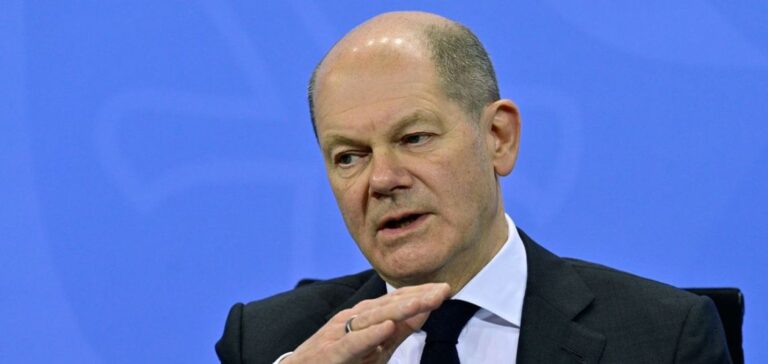Germany’s energy price shield, announced by Chancellor Olaf Scholz to mitigate the impact of inflation, will come into effect in early 2023, according to the roadmap presented Wednesday by the government.
The cap on gas and electricity prices is the main component of the controversial €200 billion energy “bazooka” announced by Berlin in late September.
For gas, the measure is to apply from “1 January” for large companies, and from “1 March” for households and SMEs, says a final draft published by the German government.
Retroactive payment of February invoices is also being “considered”.
The government will subsidize 80% of household consumption. Beyond this volume, individuals will pay the market price for gas.
The cap is scheduled to expire in April 2024.
Germany, Europe’s largest economy, has been hit hard by the energy crisis affecting the continent as Russia has drastically reduced deliveries of Russian gas on which the country was particularly dependent.
Berlin provides for households, a cap at “12 cents per kilowatt hour”, except for heating, at “9.5 per kilowatt hour”, against an average of 18.6 cents currently, according to the price comparison Check24.
For industrial customers, the price of gas will be set at 7 cents per kilowatt-hour, up to a limit of 70% of consumption.
Regarding electricity, the mechanism will be implemented on “January 1”, at “40 cents per kilowatt hour”, for households and 13 cents for large companies.
While waiting for these measures to be put in place, the government will fully cover household gas bills in December.
“Emergency aid is coming!”, Olaf Scholz welcomed on Twitter. The different parts of the energy package still have to be adopted by the Council of Ministers or the Parliament.
The industrial sector, the engine of the German economy, has been calling for help for months, claiming that the existence of thousands of companies is threatened in the country, which is about to enter a recession.
Germany’s massive spending, financed by new borrowing, has not been well received in Europe, with many countries criticizing Berlin for lacking solidarity and competing unfairly with other economies on the continent.
The German government has fought against a Europe-wide price freeze, fearing for the security of gas supplies if such a measure were adopted on the continent.






















